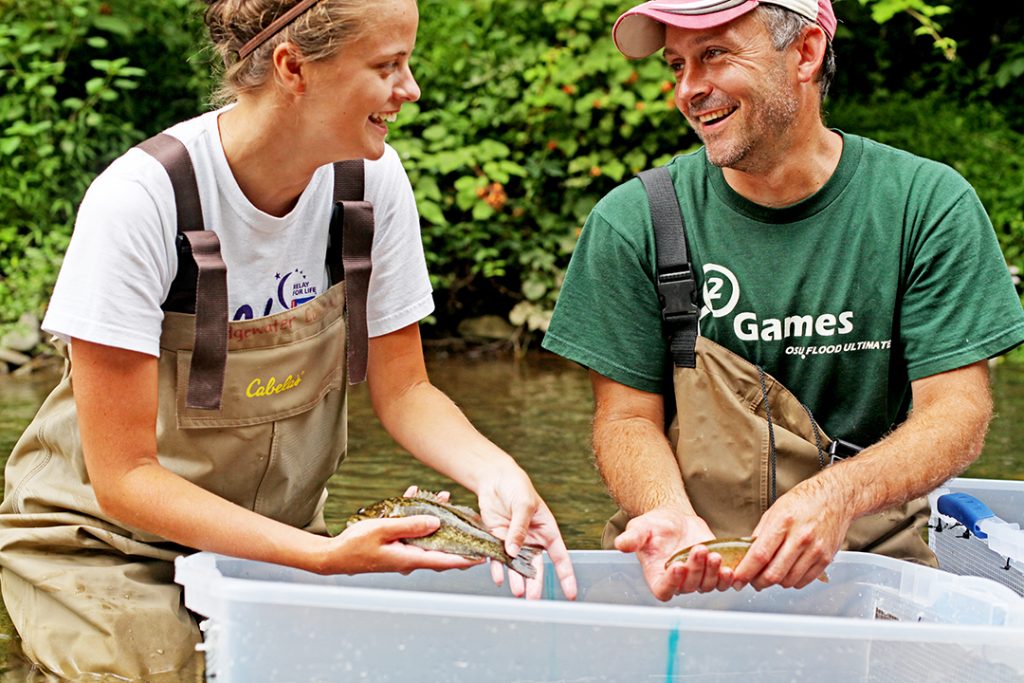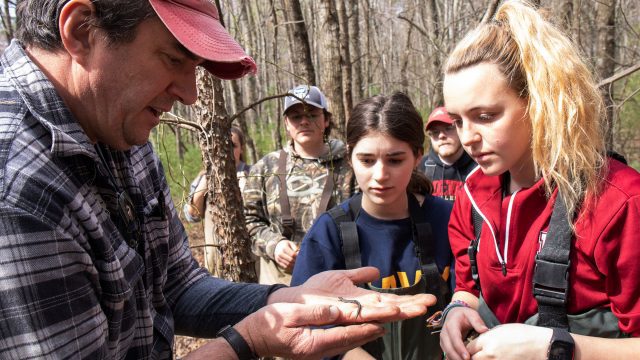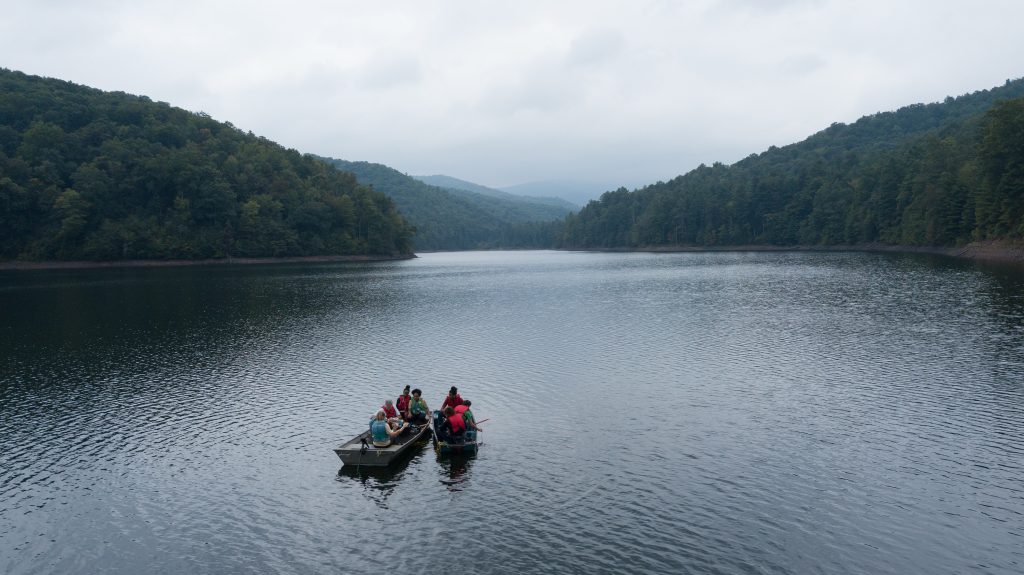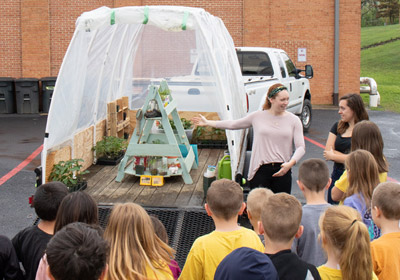Explore connections to the natural world
When you major in environmental science, you’ll be part of a program that combines courses from biology and chemistry. Your environmental science degree prepares you for immediate employment in the field or for graduate programs in areas such as environmental engineering, ecology and resource conservation.
What to Expect as an Environmental Science Major
47-50 credit hours of courses in biology, chemistry and mathematics
Experiences inside and outside of the lab that will help prepare you for your future career
Environmental Science Courses
You’ll take a variety of foundational environmental science courses, including biology, ecology, general chemistry, and the principles of environmental science. As you progress through the program, upper-level courses and hands-on research opportunities allow you to deepen your expertise in areas such as conservation, sustainability, field ecology or environmental policy.
Introduction to Environmental Sciences
ENVR-101
Introduces basic biological concepts and applies them to help students understand the causes and solutions of environmental problems.
Principles of Environmental Sciences
ENVR-301
An exploration of basic biological, chemical, geological, and physical processes at work on the earth, its lifeforms, and its natural resources.
Natural Resource & Environmental Law
ENVR-305
This course will provide an overview of federal and state laws that are aimed at the conservation of natural resources and/or protection of environmental quality.

The class where I felt I was first part of my major was Principles of Environmental Science with Dr. Kreps as this is really where I go to learn the “meat” of my major. It gave me my first real taste for field work which is why I chose a career where I am doing field work and out meeting and talking with farmers.
Rachel Winter ’18, Environmental Science Major
Required Courses Meet the Faculty

Wildlife Biology Minor
The wildlife biology minor allows students wanting the breadth of the biology or environmental science major to also focus in areas of wildlife biology and management.

Program Highlight
Smithsonian-Mason Semester for Conservation Studies
Bridgewater College is a member institution of the Smithsonian-Mason Semester, which is run by George Mason University out of the Smithsonian Conservation Biology Institute (SCBI) in Front Royal, Va.
In this program, students live on the SCBI campus and learn about the theory and application of conservation biology (including the social, political and economic dimensions).
Students participate in one of two 16 credit hour programs: Ecology for Effective Conservation Practices or Applied Conservation Strategies (for any student interested in conservation). Interested students should visit the program’s website and contact the biology department or the Director of Study Abroad. Both programs are appropriate for juniors and seniors. There are no specific prerequisite classes for the Applied Conservation Strategies. That program is open to all majors. The Ecology for Effective Conservation Practices semester has Ecology (BIOL-350) as a prerequisite.
Participants in the Smithsonian-Mason Semester are responsible for all program costs. Bridgewater institutional grants, scholarships and financial aid are not available for this program, nor can student apply a VTAG funds. Generally, federal aid (including loans and Pell Grants), and outside scholarships can be transferred. Students will need to complete paperwork with the Office of Financial Aid in addition to any financial aid disbursement forms required by the program provider.
Learn how you can afford to study away with study away scholarships.
Top Career Paths for Environmental Science Majors
An environmental science degree from Bridgewater College opens the door to diverse, impactful careers in conservation, research, education, government, and sustainability. Whether you’re drawn to fieldwork, policy or lab science, you’ll graduate with the skills and experience to make a difference. Career paths include:
- Environmental Scientist
- Conservation Technical Assistant
- Science Teacher
- Natural Resource Manager
- Environmental consultant
- Water Conservation Specialist
- Sustainability consultant
- Agricultural scientist
- Wildlife Biologist or Zoologist
- Geological technician
Chart your path
Learn more about career paths, employment and advancement in the field of environmental science from the National Association of Environmental Professionals.
You can participate in environmentally-related internships in a variety of settings, including:
- Local industrial and municipal wastewater treatment plants
- Virginia Department of Environmental Quality
- Harrisonburg/Rockingham Regional Water and Sewer Authority
- District offices of the U.S. Forest Service
- Virginia Department of Game and Inland Fisheries
- Chincoteague National Wildlife Refuge
- Shenandoah National Park
- Regional environmental consulting companies
Similar Programs
Consider double majoring, adding a minor, or focusing on a certain area of study.
Questions? Contact Us!
- Dr. Edgar Lickey, Department Chair
- 540-828-5426
- elickey@bridgewater.edu






